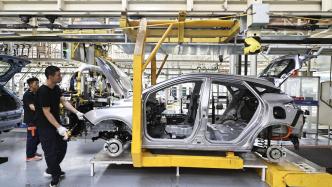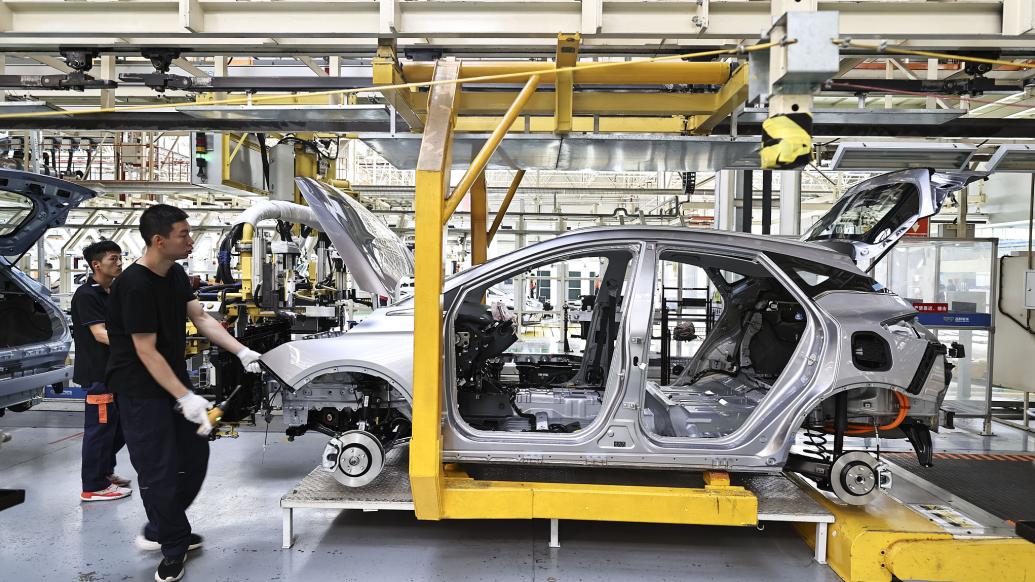
Chinese cars will face further restrictions in the United States.
According to foreign media reports, on July 17, a senior US official said that the US Department of Commerce plans to release new rules on connected cars next month, which is expected to impose restrictions on some software made in China and other countries regarded as adversaries.
Alan Estevez, undersecretary of commerce for industry and security at the U.S. Department of Commerce, who oversees import and export controls, said at a forum: "We are looking at some of the key driving components of the vehicle and some of the software that manages the data around the car, so these components must be made by allies."

Workers work on a car production line in Jinzhong, Shanxi.
In May, U.S. Commerce Secretary Gina Raimondo said proposed rules on Chinese connected vehicles would be released this fall. She also said the Biden administration could take "extreme action" to ban or impose restrictions on Chinese connected vehicles after it launched an investigation in February into whether Chinese imports posed a national security risk.
Alan Estevez said at the forum: "Connected cars have integrated network hardware on board, allowing Internet access, allowing them to share data with devices inside and outside the vehicle. There is a lot of software in modern cars. It takes a lot of pictures. It connects to your phone. It knows who you call, it knows where you go, and it knows you very well. This is a big threat to us."
China's Foreign Ministry has previously urged the United States to "respect the laws of the market economy and the principles of fair competition."
In response, Gina Raimondo said, "If we have millions of cars on the road and the software is suddenly disabled, theoretically you can imagine the most catastrophic consequences."
If nothing unexpected happens, new restrictions on components related to China's connected vehicles will be issued on August 1.
At the same time, the EU and the US are singing the same tune and attacking Chinese cars from multiple dimensions. Under pressure from some EU countries, especially Germany, which has the most developed automobile industry, who are opposed to raising tariffs on Chinese electric vehicles, the European Commission has announced that it may consider reducing import tariffs on electric vehicles made in China by BMW and Volkswagen. People familiar with the matter revealed that the European Commission is willing to classify the two automakers as so-called "cooperative companies" and reduce the tariff to 20.8%.
The European Commission previously announced that from July 5, the temporary anti-subsidy tax rates applicable to the three sampled Chinese automakers, BYD, Geely and SAIC Group, will be 17.4%, 19.9% and 37.6% respectively; other electric vehicle manufacturers that cooperated in the investigation but were not sampled will be subject to a temporary anti-subsidy tax of 20.8%, and the tax rate for non-cooperative automakers will be 37.6%.
Before the EU announced the temporary tariffs, BMW's electric MINI produced in China and Volkswagen's Seat brand Cupra Tavascan were not included in the EU's sampling analysis, which means they will automatically accept the highest tariff level. If these foreign automakers in China do not respond to the EU's investigation, they will be classified as non-cooperative manufacturers and will be subject to the highest tariff rate. Otherwise, they will be classified as "cooperative companies."
If an agreement is reached, this will be the first compromise made by the EU on the issue of tariffs on Chinese electric vehicles. However, some analysts believe that this further raises questions about the fairness of this anti-subsidy investigation.

